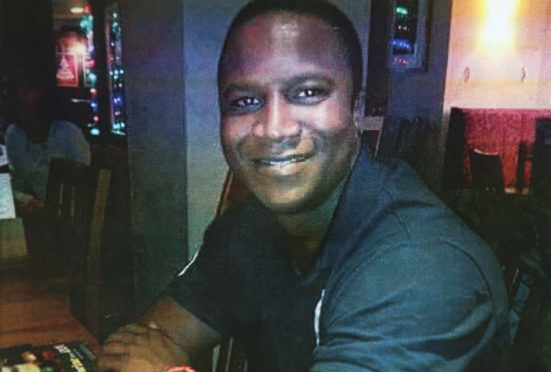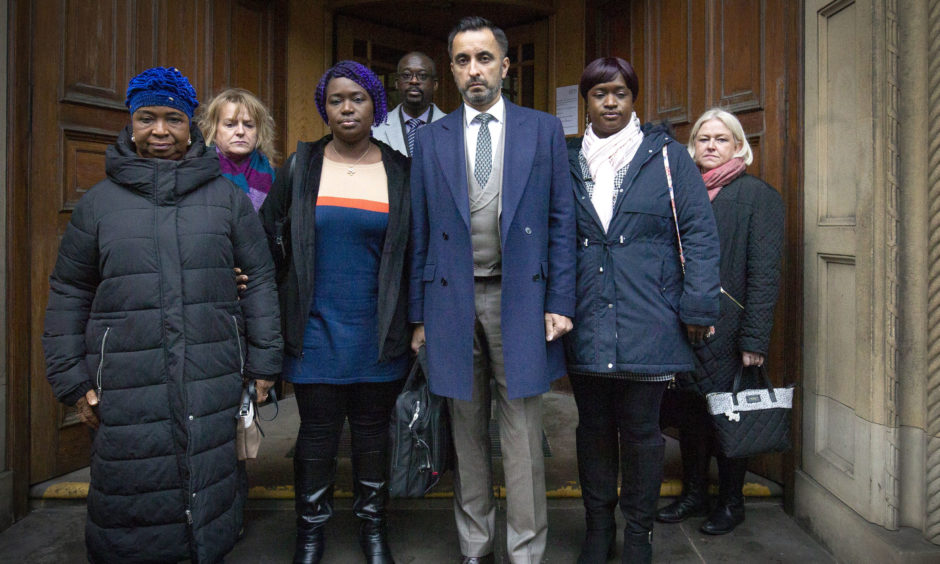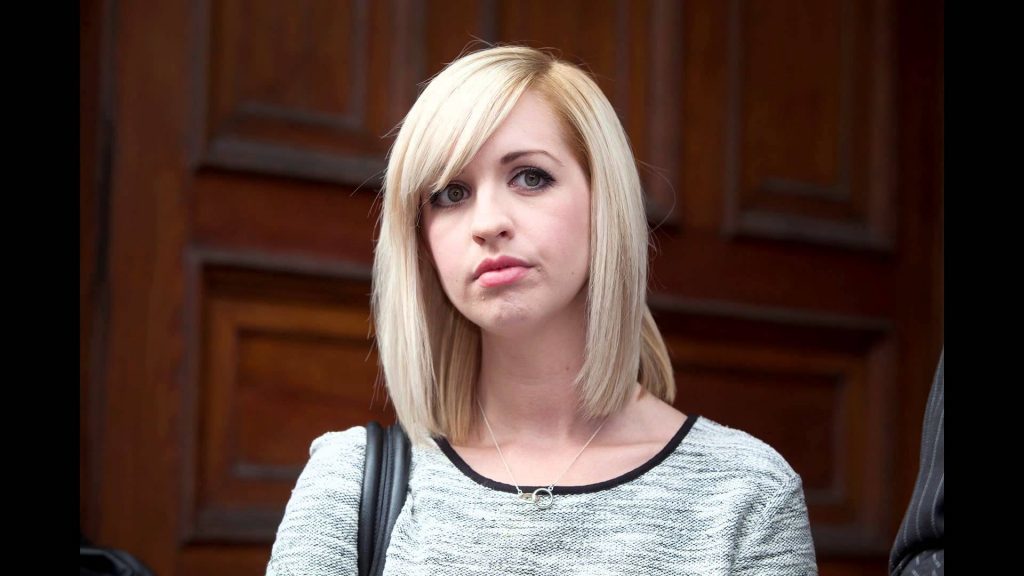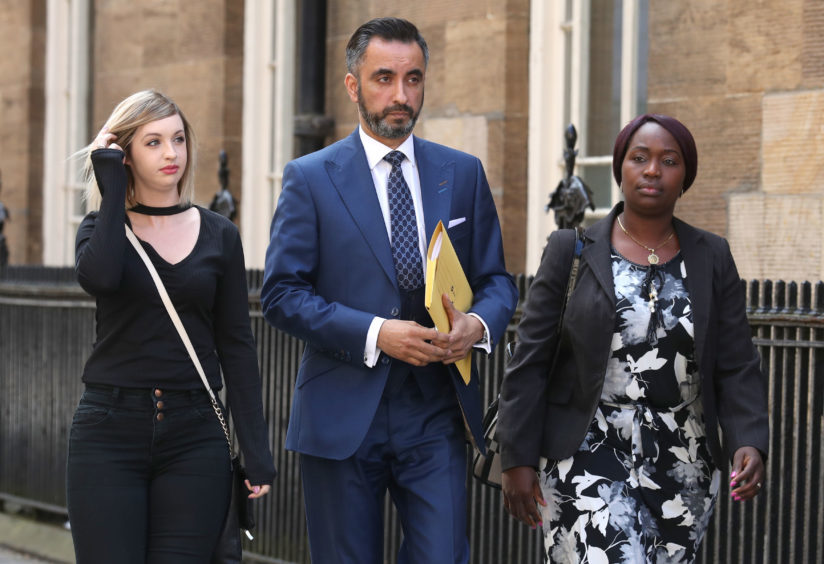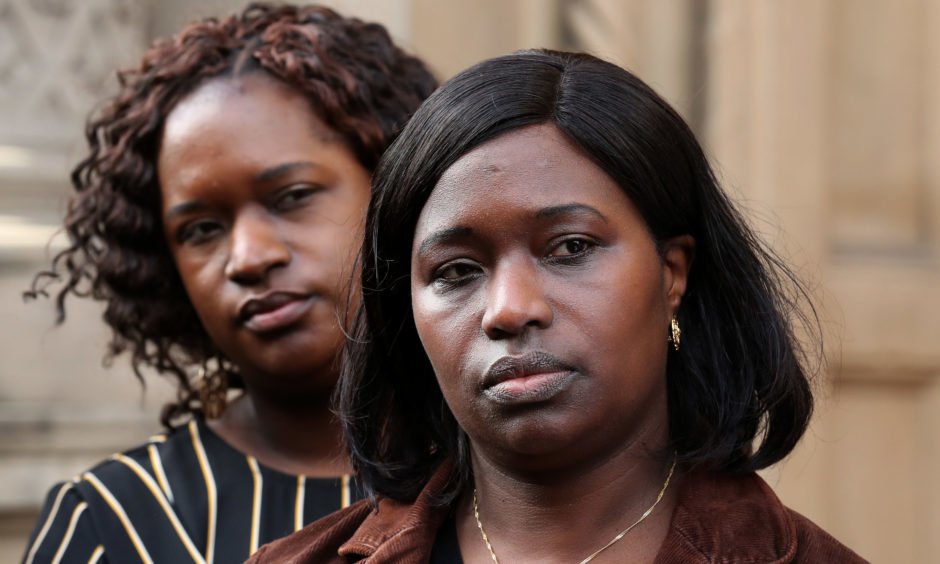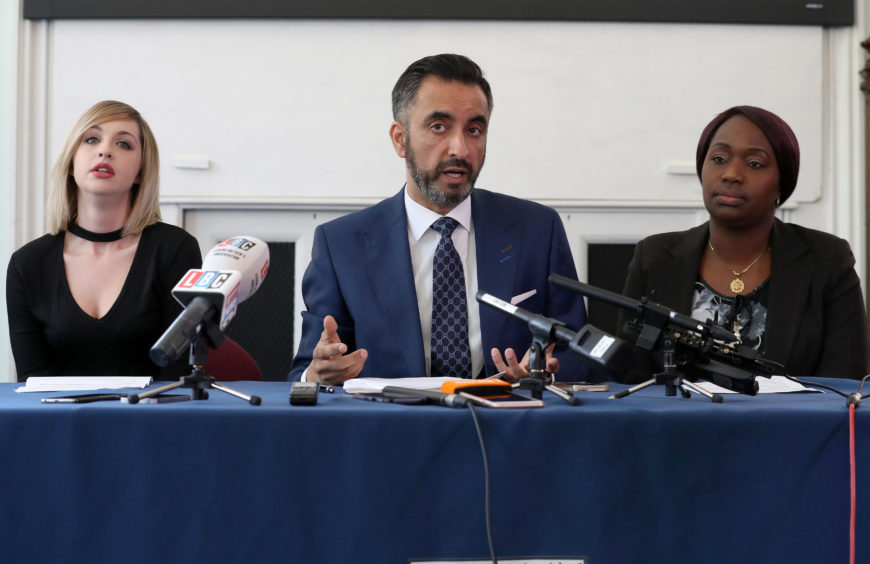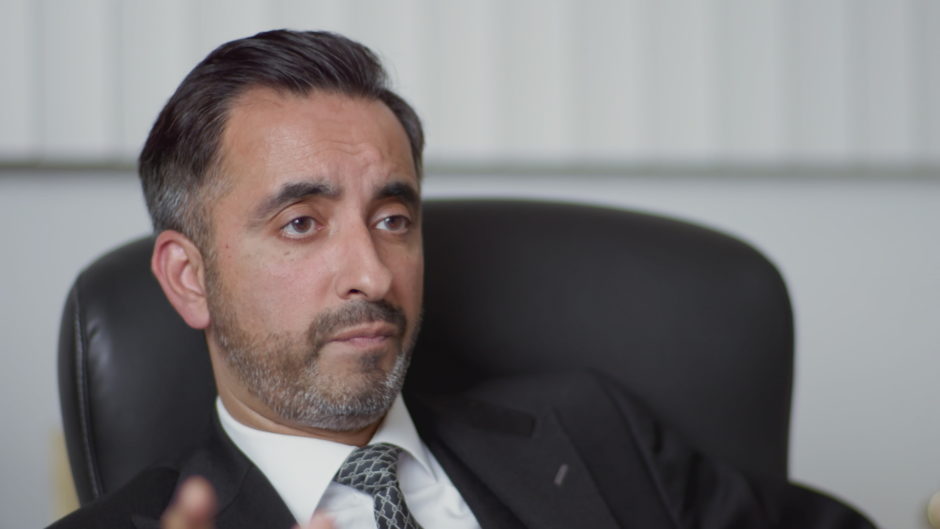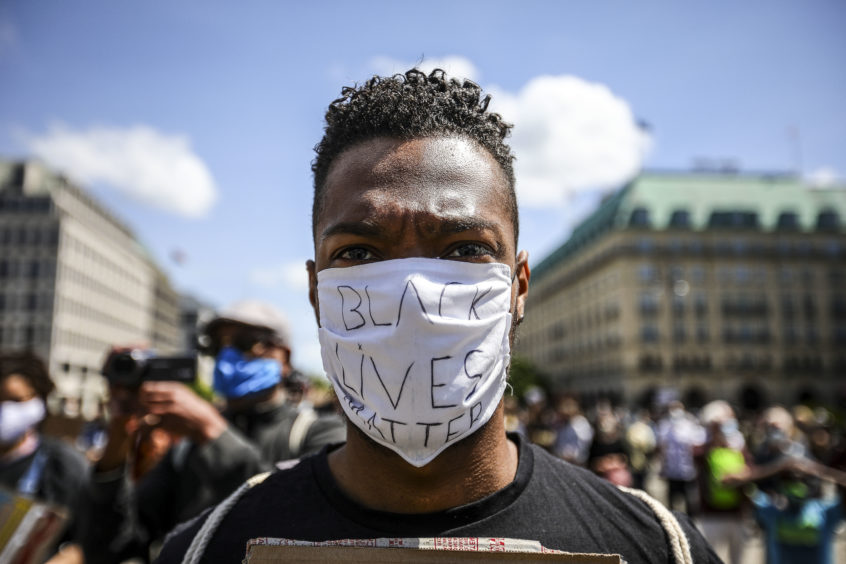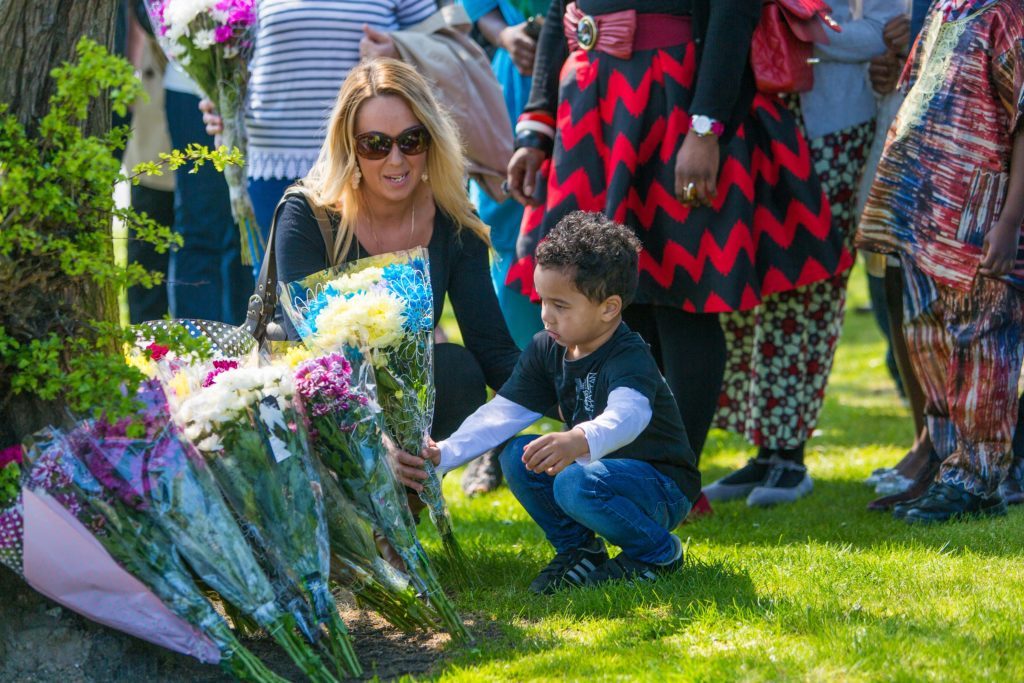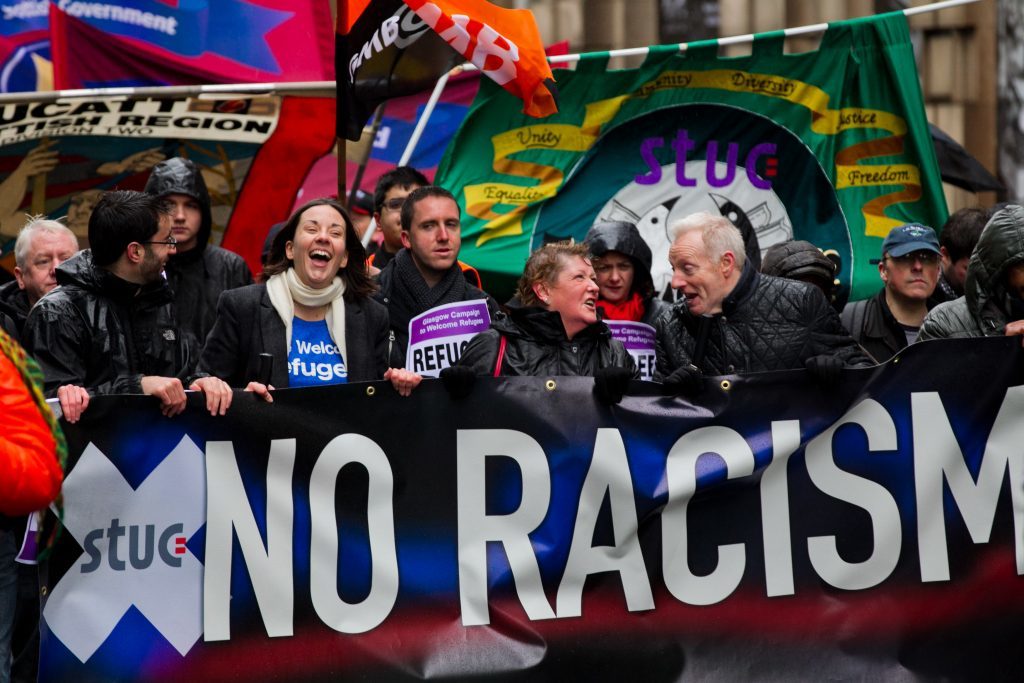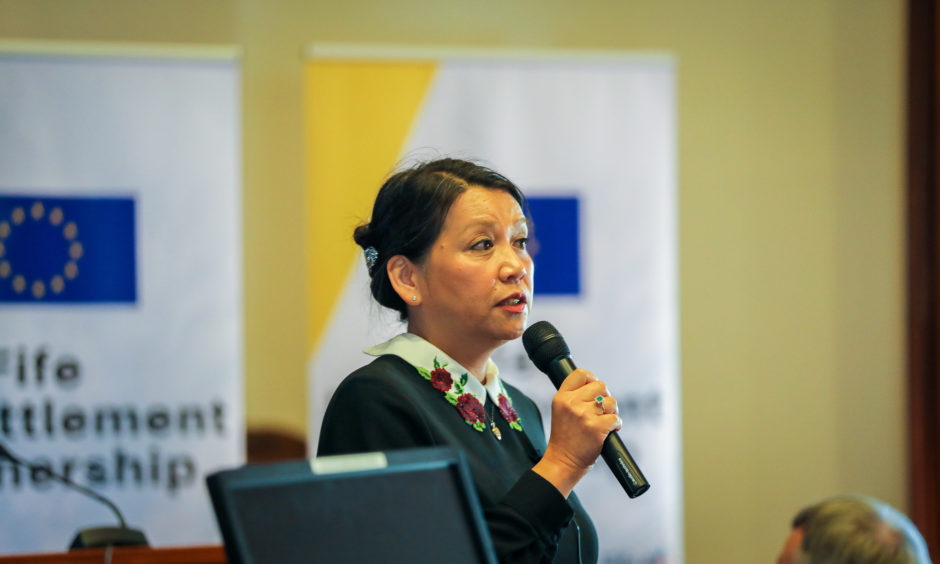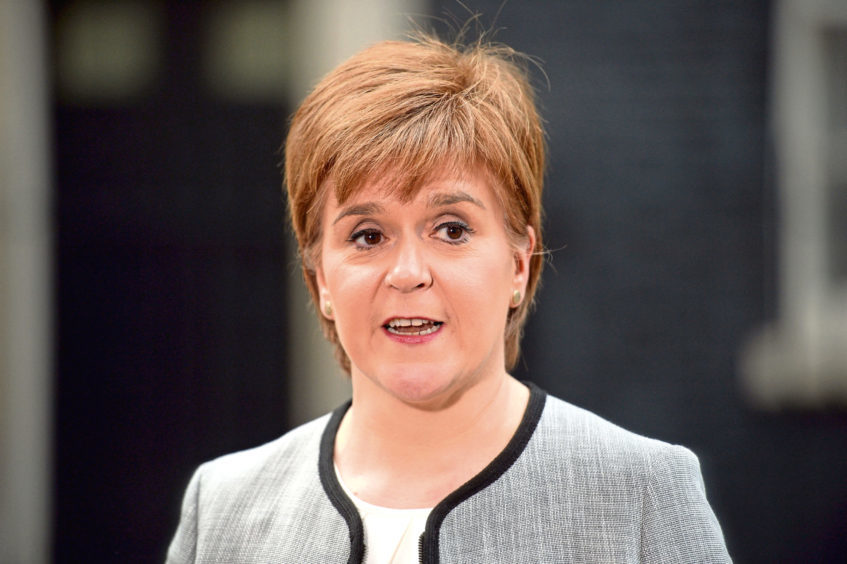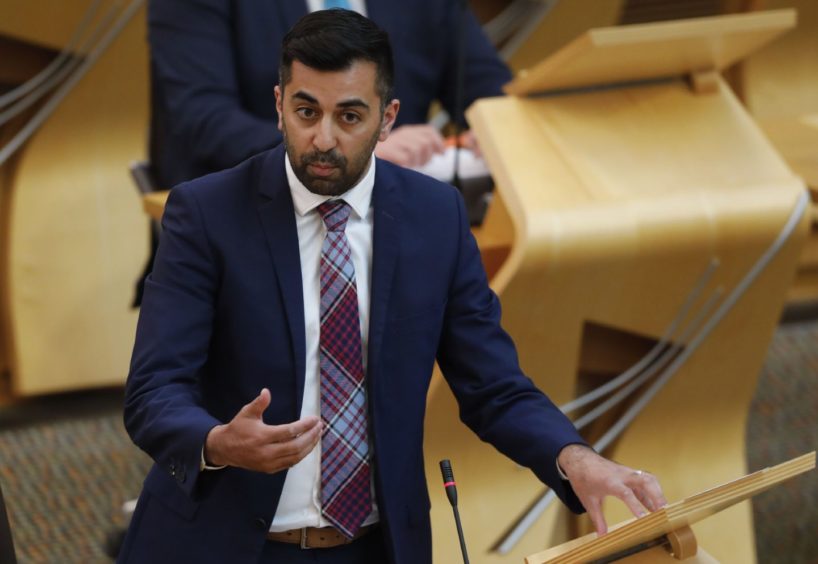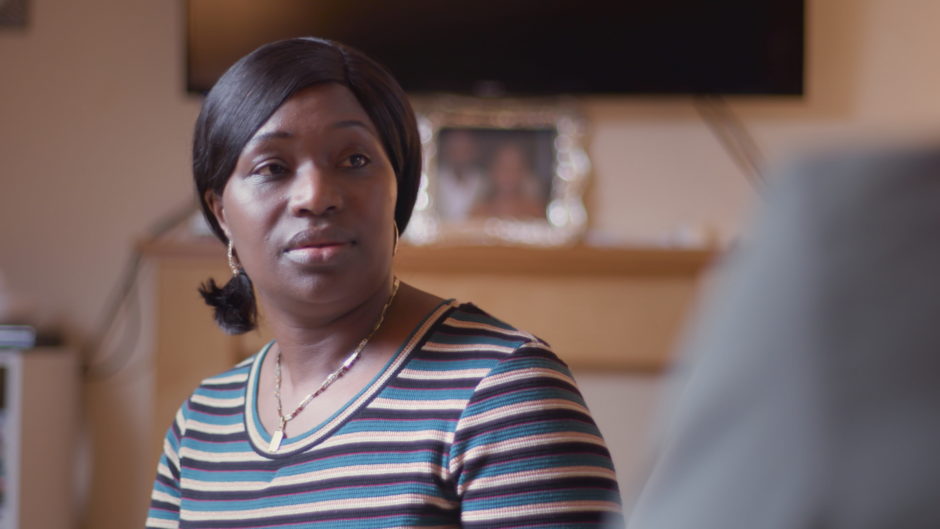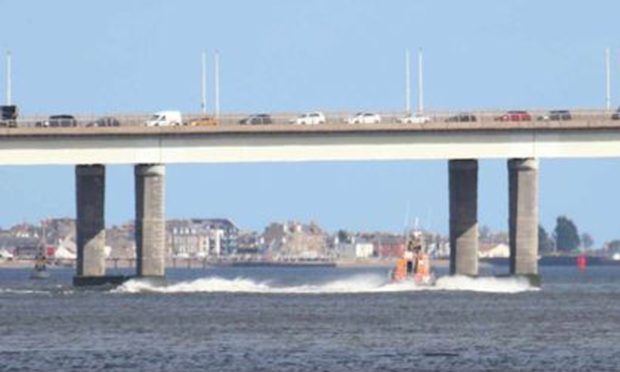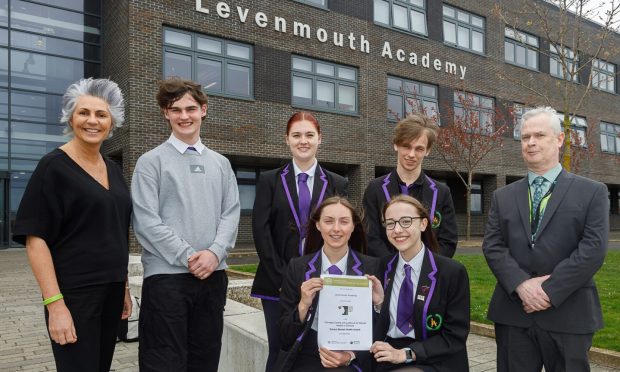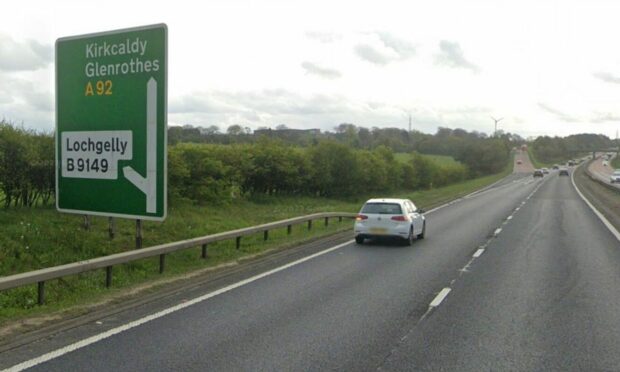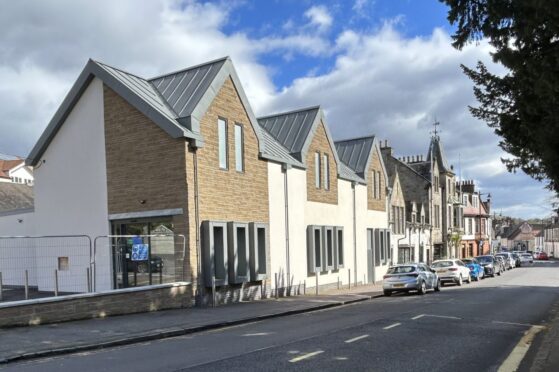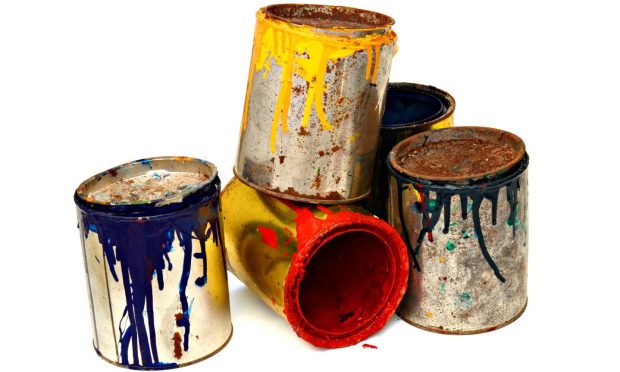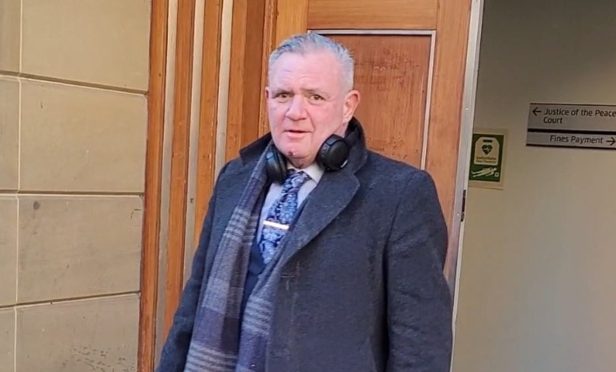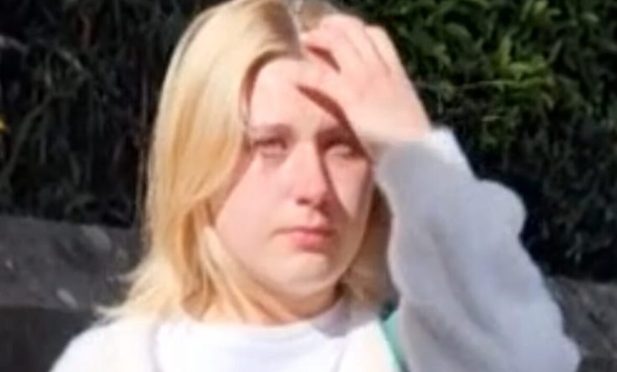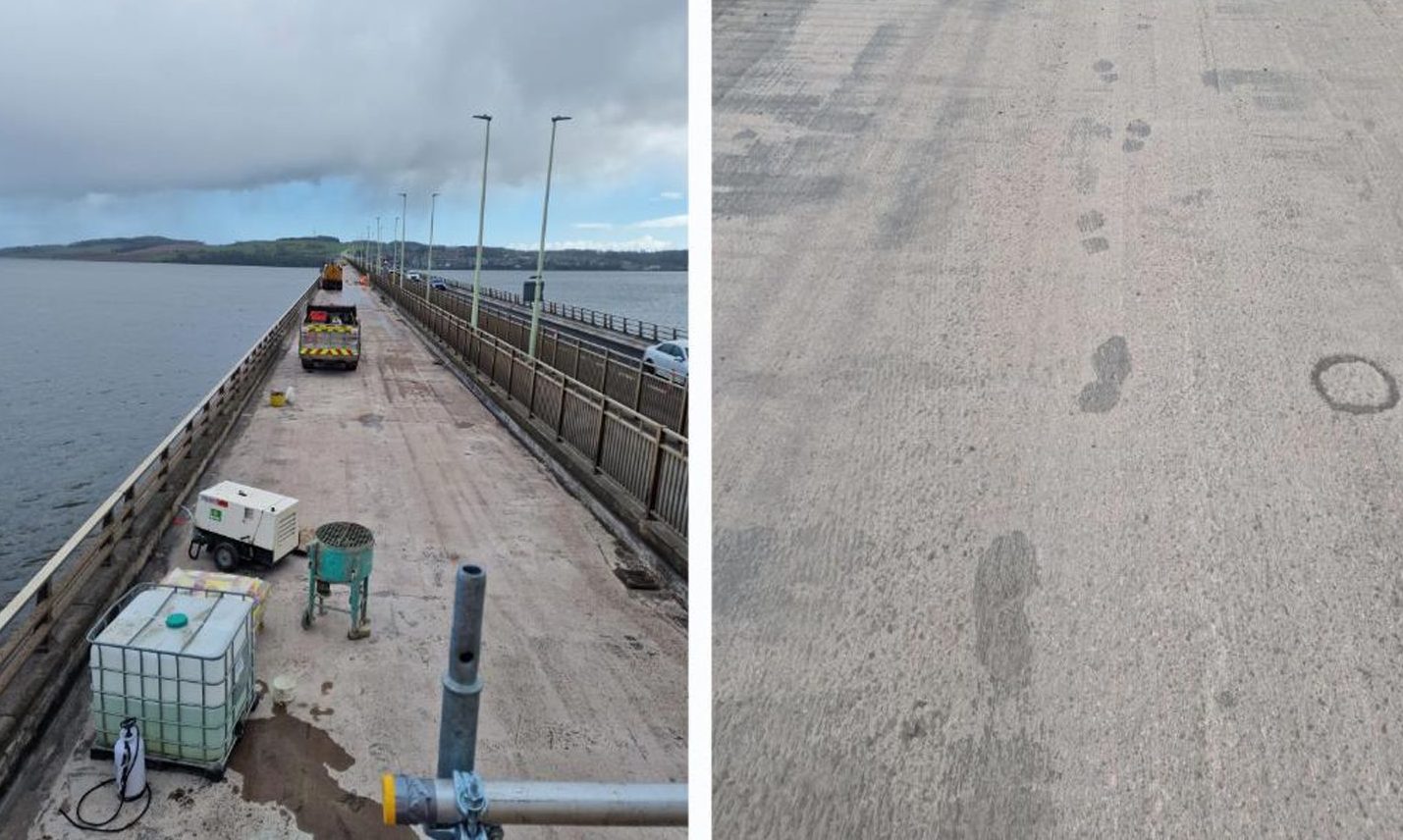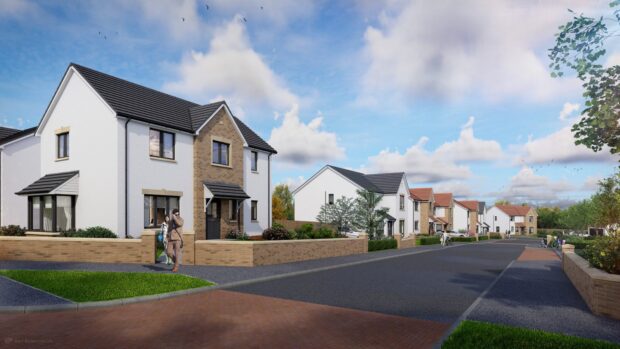As Black Lives Matter plan peaceful protests in Dundee, Edinburgh and Glasgow on Sunday June 7 out of solidarity for events gripping the USA, Michael Alexander speaks to the family and lawyer of Fife man Sheku Bayoh who died whilst being arrested by police in Kirkcaldy in 2015.
They are the images that have sparked civil unrest across the USA and beyond – the sight of unarmed African-American man George Floyd being arrested in Minneapolis as a white police officer continued to kneel on his neck for around eight minutes even after he pleaded that he could not breathe.
But for the family of Fife man Sheku Bayoh, 32, who died in police custody in 2015 after being restrained by officers in Kirkcaldy, the daily appearance of George Floyd on TV and the violent clashes that have followed fills them with “untold pain”.
It was announced in mid-May that the remit of an independent public inquiry into the death of Mr Bayoh, who was originally from Sierra Leone, will look at the circumstances before he died, the subsequent police investigation and whether Mr Bayoh’s “actual or perceived race” played any part in events.
This followed the announcement in November that the Police Scotland officers involved, who deny any wrong-doing, will not face prosecution.
But as far as Sheku’s ex-partner Collette Bell, of Glenrothes, is concerned, comparisons with what happened on the streets of Minneapolis last week and what happened to the father of her child on the streets of Kirkcaldy five years ago are justified and clear.
“I’m so angry about it and heartbroken about what happened to George Floyd,” Collette told The Courier.
“He deserves justice, but so does every black life taken by the police unjustly. What they did to George Floyd they also did to Sheku Bayoh, but five years on there is still no justice or peace.”
Collette said she feels it’s important to “speak up” about racism. However, she says it’s “frustrating” that when it happens in Scotland or the UK, it gets “little to no coverage – as though the problem does not exist.”
Bayoh family solicitor Aamer Anwar – a leading Scottish human rights lawyer – has welcomed the “unprecedented and wide-ranging” terms of reference for the Sheku Bayoh inquiry.
However while the relevance of “race” has yet to be determined in the Fife case, he too believes the Kirkcaldy and Minneapolis cases are a “very fair comparison” which, sadly, underlines a wider endemic racism problem that persists in American and Scottish/UK society.
“I appreciate there will be those who say it’s not a fair comparison to make,” Mr Anwar told The Courier.
“But from the perspective of Sheku Bayoh’s family and loved ones, Sheku is detained by up to nine officers, he sustains multiple injuries, he’s handcuffed, he’s leg cuffed, he’s ankle cuffed, and he dies in the space of four minutes. All the police officers get up and walk away.
“Not a single officer is suspended, not a single officer is arrested. Five years later a family campaigning for justice in the midst of their grief are told not one officer will face charges.
“Then the family receives news of a public inquiry. The family hope it will reveal the truth. But it’s not justice.”
On Tuesday, Police Scotland chief constable Iain Livingstone issued a statement saying he is ‘”shocked and distressed” over the ongoing events in the United States and has enforced that they do not reflect the policing style of the force in Scotland.
The Chief Constable spoke out to condemn racism in all of its forms, as well as praise the positive relationship the Scottish public have with their police officers.
However, Mr Anwar claims police forces, whether they be in the USA or UK, have a history of following a “text book” approach when dealing with the death of a black person in custody. He said this involves “criminalising the behaviour of the dead man, stigmatising him, stereotyping him, and then as a result, justifying that death”.
“Look back in the UK or the USA, and in each of these situations it’s usually the black man that’s to blame for his own death,” said Mr Anwar.
“It’s never anything to do with the excessive force used, never to do with the disproportionate and illegitimate force used on that black man. Always for some reason the black man is held responsible.”
Mr Anwar said that since 1969 there have been 3000 deaths in police custody in the UK yet not a single successful prosecution of a police officer. “That begs the question why not?” he added.
Mr Anwar said there was a “myth that persists” in Scotland that somehow racism does not impact here – that “we’re all Jock Tamson’s bairns”.
However, he added: “The bottom line here is that when you scratch the surface, racism rises to the top, racist attacks are at their highest level ever. The targets may well change but the targets are still racism.
“Whether it’s Islamophobia, anti-semitic, whether it’s against Eastern Europeans or asylum seekers, the targets still remains the same – it remains racism – yet there is a denial….”
He may be regarded as one of Scotland’s highest profile and most robust anti-racism campaigners.
However, as a Scottish-based lawyer of Pakistani background, 52-year-old Mr Anwar admits that he “feels fear” at raising the racism issue when it’s personally against him.
The current rector of Glasgow University says he has never once publically complained about racism against him in the legal system.
However, he said that doesn’t mean racism in the legal profession doesn’t exist.
The reason he doesn’t raise it, he says, is because he knows it will be “shut down”, “excused” or he will be told he is “playing the race card” or being “far too sensitive”.
Mr Anwar said until Scotland faces up to its history as part of the British slave trade, the cities that were built on it and the human misery this brought, he feels underlying racism will persist.
While he believes racism was “invented” to justify colonial rule and slavery, he said it’s almost as if society from a “white privilege” perspective had decided “everything’s moved on and everything is resolved”.
He said the reality was, however, that when BAME parents send their children out to school each day, they worry if they’ll receive racial abuse or worry if they’ll be stopped and searched by police. Parents worry that when their children grow up and sit their exams and apply for jobs, that they will be discriminated against.
“I always tell black, Asian, ethnic, minority students when I’m lecturing to them that you will have to work 10 times harder to succeed,” he said.
“You will spend a lifetime looking over your shoulder and low betide if you raise the issue of racism. “So of course what’s happening in the USA has struck a chord with the BAME communities far more than anyone else. A lot of my white friends also feel anger and anguish. But if you happen to be from a community that feels racism every day, we are looking in utter utter shock and bemusement because we are wondering what’s happening on our own turf?”
Mr Anwar said his message to anyone wanting to stand in solidarity with George Floyd, and to fight against racism and injustice, is to “start looking at what’s happening in your own country”. He added that people could “start with Sheku Bayoh”.
He added: “The bottom line here is, so long as black people are being murdered for the colour of their skin, so long as our people are being abused, and stigmatised and criminalised, stereotyped to their death, then why should we stop talking about racism?
“The strength from this that can be drawn is groups, organisations, individuals and communities uniting saying we are not the enemy – don’t be divided. Stand together.”
However, he challenged the “great and the good” for commenting on George Floyd but having “nothing to say” on Sheku Bayoh.
“If you are going to stand in unity and solidarity, then I ask the question – where are the thousands who marched for Sheku Bayoh?” he said.
“His family are feeling untold pain at this moment every time they see the picture of George Floyd. “Whether it be George Floyd or Sheku Bayoh, the words ‘I can’t breathe’ sum up the same.”
The Coalition for Racial Equality and Rights works to eliminate racial discrimination and harassment and to promote racial justice across Scotland.
They list 10 things they “need to say” about racism. They are:
• Racist murders – between 2000 and 2013, the per capita rate of murders with a known or suspected racist element in Scotland was higher than in the rest of the UK – 1.8 murders per million people in the population compared to 1.3.
• Racist violence – there were 4,807 racist incidents recorded by the police in 2013-2014, which is a 3.9% increase from 2012-2013. This is approximately 92 per week, and is almost certainly the only “tip of the iceberg”. According to the Crown Office and Procurator Fiscal Service, racial hate crime remains the most commonly reported hate crime in Scotland, with 3,875 charges reported in 2014-2015, or nearly 75 per week.
• Poverty – in the three years leading to 2013, poverty was significantly higher for minority ethnic groups with racial inequality cited as one of the contributors to the widening gap between the richest and poorest in society.
• Unemployment – those from non-white minority ethnic groups are unemployed at a higher rate than those from white ethnic groups.
• Public sector discrimination – 2011-2012 figures showed that, for local authority jobs, even after the interview stage, white candidates were almost twice as likely to be appointed as BME candidates.
• Employment discrimination – Department for Work and Pensions research showed a person with a ‘BME surname’ had to senf an application away 16 times to achieve a successful response compared to the nine times for someone with a ‘white name’ – even though they were submitting the same application.
• Education – while at school-leaving age, non-white minority ethnic pupils are overall outperforming white ethnic pupils, they are under-represented in higher education and their educational attainment does not necessarily result in appropriate advantages in the job market.
• Elected office – despite constituting 4% of the population, non-white minority ethnic backgrounds are under-represented in politics.
• Housing – Research has shown that non-white minority ethnic communities are over-represented in private renting, but under-represented in home ownership and social housing leaving groups more vulnerable to unstable letting and more expensive rents.
• Prejudice – 22% of people in Scotland feel that there is sometimes a good reason to be prejudiced against certain groups. 19% of those from a non-white minority ethnic group reported experiencing discrimination, compared to 6% of those from a white ethnic group.
According to a Fife-based organisation that tackles inequalities and social justice, racial inequality has “always been there” in Scotland and requires “continual effort” to address it,
Fife Centre for Equalities manager Nina Munday said it was not possible for one single government policy or document to “wave it away”.
She said attitudes towards black people in particular had been “entrenched too long” – and she traces these attitudes back to Britain’s colonial slave trade.
“People don’t like to go back to the slavery issue,” she said, “but for too long people have been treating black people or people of different colours as commodities that they can sell or buy and people are conditioned to think that somehow they are not the same as us.
“I think that’s the problem. People think they don’t have the same rights as us.
“What I continue to highlight in Fife and Scotland is the discrimination that happens at school and further and higher education and continues on to employment.
“We are trying everything we can to make people understand we all have equal capacities if all given the same opportunities.
“I think colour still remains a factor no matter how far people think we’ve gone beyond that issue.
“Colour does effect how we treat one another how we behave to one another. It is important to have that conversation in an honest way. It’s not trying to portray Scotland or other places as a racist country.
“But if we don’t have those conversations we’re not able to prevent situations like Sheko Bayoh and George Floyd.”
Nina said hate crimes against the Chinese community had increased since the Covid-19 outbreak.
With many keyworkers from ethnic minority backgrounds, Fife Centre for Equalities launched a campaign at the start of the lockdown warning against racial abuse.
However, with the world connected, she said it was “quite sad” that instead of calming the situation, the US president, who previously referred to Covid as the “Chinese disease” stood up and took a stand on George Floyd that “inevitably” resulted in protests spilling over into wider society. She said it was “very difficult to manage” the message to young people in particular.
On a positive note, however, she said everyone can do their bit to promote racial equality – although this needs to be a “continuous journey”.
Last year more than 80 artists, academics, lawyers, and activists signed an open letter warning that attitudes to race and racism in Scotland are “rolling backwards.”
They warned of a climate of “resentment towards frank discussion of race and racism” that is threatening to undo progress on race equality.
The Scottish Government has emphasised that racism and discrimination have no place in a modern and successful Scotland and has pledged it will continue to take decisive action to tackle it.
Supporting anti-racist demonstrators on Twitter this week, First Minister Nicola Sturgeon said: “Racism is an evil that none of our societies can claim to be immune from. But we must stand against it and eradicate it.”
Meanwhile, in a joint statement issued on Thursday by Aamer Anwar, Kadijartu Johnson -a nurse and sister of Sheku Bayoh; Anas Sarwar MSP Labour and Humza Yousaf MSP, Cabinet Secretary for Justice, supporters of #BlackLivesMatter have been urged not to attend demonstrations planned in Scotland this weekend due to the ongoing “fragility” of the coronavirus pandemic.
The statement said: “We are united in our abhorrence at the scenes of racial injustice in the US, and stand in complete solidarity with the Black Lives Matter Movement and those demanding justice for George Floyd.
“Like so many we want to stand in unity with millions across our planet to show solidarity with those protesting against racial injustice in the USA, but also to support those challenging racial injustice and discrimination in Scotland.
“Just this week the UK Government has released a report showing that BAME lives have been disproportionately impacted by Covid-19. The progress we have made in Scotland, easing out of lockdown, is fragile. The rules in place are there to protect people’s health and ultimately people’s lives.
“Therefore, as long-term anti-racist campaigners we are still urging people to protest but to use the many other methods available at this time, including digital protests.
“We hope people will understand our position and explore other methods of demonstrating practical solidarity with #BlackLivesMatter.”
In a separate statement, Aamer Anwar said: “The Bayoh family and myself had been invited to speak at #BlackLivesMatter protest on Sunday in Glasgow and it has been incredibly hard to come to a decision on whether to attend in light of the Coronavirus pandemic.
“I totally understand the need to be on the streets and have been desperate to send solidarity in our thousands from Scotland to those fighting racial injustice in the USA, but also to highlight “Justice for Sheku Bayoh” here in Scotland.
“But ultimately it is the slogan #BlackLivesMatter which has convinced us to say no. We believe at a time when so many are dying from COVID19, and the BAME community are disproportionately represented, it would not be right to protest in large numbers on the streets.
“We have condemned the likes of Dominic Cummings or those protesting against lockdown, regulations are in place to save lives and protesting at this stage we believe would be far too dangerous.”
Sheku Bayoh’s sister Kadi Johnson added: ““In as much as my family would like to be part of the demonstrations taking place on Sunday for Black Lives Matter, I believe that danger of the spread of coronavirus is still too great.
“As a staff nurse I know the deadly impact of the virus and I would worry about social distancing on the day and the lives of my family and other lives being put at risk. Sadly we cannot attend, nor will we encourage others to go because we believe a virtual protest would be far more effective and involve those unable to attend because of the risk.
“I hope that you will join our campaign, we have fought for five years for justice for my dead brother Sheku and believe Black Lives Matter is as relevant in Scotland”.
